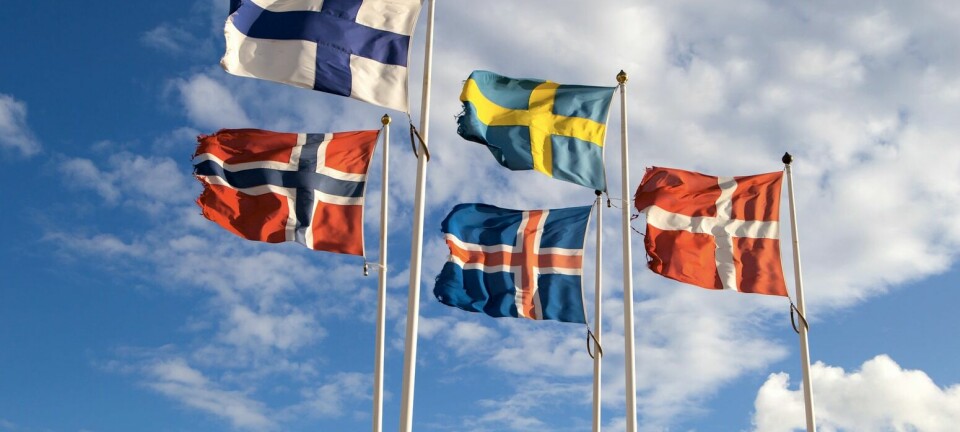
Should we have let more companies go bankrupt during the pandemic?
Norway is an incredibly rich country, with large and powerful labour organisations that like to join forces to demand money from the state. But are we then able to adapt and become more efficient?
"Creative destruction" is what economists call it.
This refers to a unique opportunity in times of crisis to get rid of businesses that are no longer profitable.
The idea is that capital and labour can instead find their way to new companies – which are based on new and better ideas.
Should the state take responsibility?
The University of South-Eastern Norway recently invited a panel of researchers and economists to discuss whether, now after the pandemic, we should still give the state responsibility for keeping companies alive.
Should the state spend even more money on taking responsibility for reviving businesses?
Or should we rather focus on ‘self-healing’ in the Norwegian economy?
A very rich state
“The special challenge in Norway is that we have an incredibly rich state, as well as organisations, such as LO and NHO, which come together to demand specific measures aimed at companies,” Ola Kvaløy, professor of Economics at the University of Stavanger, said during the panel.
The Norwegian Confederation of Trade Unions (LO) is an umbrella organisation of labour unions, and the Confederation of Norwegian Enterprise (NHO) is an employer’s organisation.
Kvaløy went on to argue that the temptation to hand out support in cases when it isn’t justified becomes great.
“We also have a kind of 'industrial romance' in this country,” he said. “This is about maintaining power-intensive industry, almost regardless of the cost of its energy use.”
Why on Earth?
Gunnar Stavrum, editor of online newspaper Nettavisen and a well-known sceptic when it comes to government interference, led the panel.
He asked Øystein Dørum, chief economist at NHO, why on Earth rich companies that are unable to drive value creation with today's electricity prices should be saved by the state.
“The short answer to your question is that if a company cannot pay the prices that the market sets for it, whether it is labour, capital or inputs such as energy, then that company does not have the right to life,” Dørum said.
Many more would have gone bankrupt
Dørum admitted that many more Norwegian companies would have gone bankrupt during the pandemic if it wasn’t for the support schemes put in place by the government.
“But if we had allowed many more companies to go bankrupt, they could have dragged even more down with them. And many of these are businesses that it would have been pointless to watch crumble,” he said.
Dørum added that if today's high energy prices continue, this is something the companies will have to adapt to.
Companies have to adapt and use energy more efficiently.
"Save jobs"
Economics-professor Ola Kvaløy was clear that we must tolerate letting some companies go bankrupt if we are to restructure the Norwegian work sector. He also reminds us that Norway is becoming an increasingly service-producing country.
“This is in line with the low-emission society we want to move towards. Why then should we maintain heavy industrial companies in Norway?” he asked.
Kvaløy believes that the term "saving jobs" is constantly misused.
“A lost workplace is labour that should move to another place,” he says.
“Yet we still have to consider the impact this has on people. But Norway is particularly well equipped through the welfare state to achieve this. It gives people time to find other work and also provides them with a foundation of social security."

Creative destruction is ingrained in Norway
Bjørn Engaas is an associate professor at the University of South-Eastern Norway.
During the debate, he pointed out that 'creative destruction' is already imbedded in the Norwegian system.
“The Norwegian income model – with high wages – has been constructed in a way that makes it difficult for some companies to continue to operate over time,” Engaas said.
“When these companies go out of business, new companies will be created.”
Engaas believes it is good that we have a system in Norway that does not make it possible for employers to drastically lower wages when a business goes downhill.
“This is part of the Norwegian model. However, we need to have a safety net at the bottom, where the state takes care of the employees who need it,” he said.
“Norway's success story is precisely that we are able to adapt. We are able to become increasingly efficient.”
Is 'stagflation' happening now?
Engaas believes that history has shown us that government planning of the economy is more difficult to achieve than we have imagined.
He highlighted the little-known term 'stagflation'.
“I don't think very many people have heard of this term since the 1970s. This means that we have stagnation in the economy, while we at the same time also have high inflation,” he said.
“Today we see tendencies towards exactly this, both in Norway and elsewhere.”
Government support for large battery factories
Until the 1970s, there was a strong belief in Norway that the state could play a large and important economic role in business. This resulted in several large state-owned companies such as Norsk jernverk (Norwegian ironworks).
“The belief that the state should play a major role faded slightly in the 1970s and even more so in the 1980s, and continued into the 2000s,” Engaas said.
Now fundamental crises are hitting the economy again.
But why is it so much more important today than it was during crises 20 years ago, that the state steps in and takes an important role in the establishment of battery factories and other large enterprises, Engaas wonders.
“This is something that comes in waves. And there is reason to reflect on why we have now had a resurgent belief that the state should play such a large and strong role,” he said.
Ola Kvaløy fears that more government money for Norwegian industry, on the contrary, could reinforce some of the 'crisis tendencies' that we now see in Norwegian economy.
———
Translated by Alette Bjordal Gjellesvik.

































